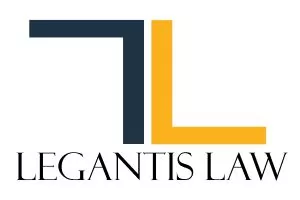1 Legal and enforcement framework
1.1 In broad terms, which legislative and regulatory provisions govern virtual currencies in your jurisdiction?
In Guatemala, there are no legislative or regulatory provisions which specifically govern virtual currencies. However, virtual currencies are not expressly prohibited, which implies that they can exist and be used under private law.
1.2 In broad terms, which legislative and regulatory provisions govern entities that provide services relating to virtual currencies? Must they be registered or licensed by a regulatory authority?
In Guatemala, entities that provide services relating to virtual currencies – commonly known as virtual asset service providers (VASPs) – do not require a licence or special registration to operate or provide services. To operate legally in Guatemala, a VASP requires only the same registrations as any other commercial service provider. While at present the Guatemalan government does not rely on legal tools to supervise VASPs, this could change in the future.
1.3 Which bodies are responsible for enforcing the applicable laws and regulations? What powers do they have?
The principal governmental institutions are:
- the Unit of Financial Intelligence, part of the Special Verification Intendency. This unit and its intendency are part of Guatemala's Superintendency of Banks (SIB) and are in charge of supervising entities for anti-money laundering purposes;
- the Guatemalan Tax Administration, which oversees taxes;
- the Customer Service Department, which is responsible for protecting consumers and service users; and
- the Stock and Merchandise Market Registry, which may oversee the use of virtual currencies in investment contracts.
As mentioned in question 1.2, Guatemala has no special laws and regulations on virtual currencies. However, it is evident that many activities relating to virtual currencies imply a direct relation between various governmental entities. Unfortunately, however, most public entities in Guatemala have little or no knowledge of virtual currencies.
1.4 What is the regulators' general approach to virtual currencies?
As yet, no specific focus or approach has emerged, as the topic is little discussed and poorly understood. The SIB recently established a special department to investigate and document financial innovations, including virtual currencies; but as yet, it has issued no opinions or guidance on the subject.
1.5 Has there been any notable enforcement action relating to virtual currencies?
Guatemala's executive body recently presented Law Initiative 5820 to Guatemala's Congress on the prevention of money laundering and terrorist financing, which – among other things – would regulate new activities that are not currently regulated in Guatemala (including those involving virtual currencies). This is a response to recommendations by the Financial Action Task Force.
2 Definitions
2.1 How are ‘virtual currencies' defined in your jurisdiction? Have there been any judicial decisions which have helped to define virtual currencies or their interplay with the existing body of laws (eg, contracts law, property law)?
In Guatemala, there are no official definitions of ‘virtual currencies'. As yet, there have been no judicial decisions which would help to define virtual currencies. The existence and use of virtual currencies are thus interpreted according to Guatemala's private laws; but this results in considerable uncertainty, as the scope of these interpretations varies.
2.2 How are ‘initial coin offerings' and ‘security token offerings' defined in your jurisdiction?
There are no official definitions of ‘initial coin offerings' (ICOs) or ‘security token offerings' in Guatemala. The issuance, possession or exchange of ICOs is not expressly prohibited; but this creates a lot of legal uncertainty, as it is a grey area. There are also no special protocols regarding the issuance and acknowledgement of STOs by the government.
2.3 Are stablecoins treated as virtual currencies in your jurisdiction or do they fall under an existing category (eg, electronic money)?
In Guatemala, there is no official definition of ‘stablecoins' and no specific legislation or regulations on electronic money. The use of electric money by banks is justified by regulations issued by the superior collegiate body of the Central Bank, but none of these refer to stablecoins. As with other virtual currencies, the use and circulation of stablecoins in Guatemala are not expressly prohibited by law.
3 Virtual currencies market
3.1 Which virtual currencies have become most embedded in your jurisdiction? Does this vary depending on the specific use?
There is no tool that allows us to gauge which virtual currencies are most embedded in Guatemala. However, commercial practice would suggest that there is greater use of Bitcoin, Ether and USDT.
3.2 What different products and services are offered?
In Guatemala, the most common services are exchange services, peer-to-peer exchanges and over-the-counter services.
3.3 How are virtual currency service providers generally structured? How are they generally financed?
Mostly, virtual asset service providers are local entrepreneurs; but over the past year, international entities have shown greater interest in providing these services, setting up their own Guatemalan companies to operate their businesses. Individual entrepreneurs are usually financed by personal or family money; while international entities are funded by their corporate structures, facilitating faster adaptation and growth.
3.4 Are virtual currency trading platforms subject to a specific regulatory regime in your jurisdiction? Must they be registered or licensed by a regulatory authority? Does this vary depending on whether the platform accepts legal currency or whether the platform is custodial? Are virtual currency trading platforms subject to any form of ‘market abuse' regulation?
Neither the use nor the operation of virtual currency trading platforms is regulated in Guatemala, and thus no special licences or registrations are required in order to operate. There is no express prohibition on operating virtual currency trading platforms; however, many legal uncertainties arise from this, which has prevented the market from growing.
4 Crossover with banking
4.1 How are virtual currencies positioned within the broader banking landscape in your jurisdiction?
The approach of banks to virtual currencies tends to vary, depending on their type and size. Some banks do not welcome them or their users, while others are open to innovation; but this has changed continually over the years. The principal concerns are the attendant legal uncertainty and fears over the use of virtual currencies for criminal activities. The Guatemalan Bank Association has discussed the subject of virtual currencies on various occasions and from various perspectives, but mostly for educational purposes only.
4.2 What impact could mainstream adoption of virtual currencies have on the ability to control inflation in your jurisdiction?
The mainstream use of virtual currencies in Guatemala is unlikely in the short or medium term. Guatemala's inflation rate is not as high as that in other jurisdictions, and we consider that if virtual currencies moved into mainstream use in Guatemala, this would be unlikely to affect the inflation rate; but further economic studies would be necessary to confirm this.
4.3 What other implications could the mainstream adoption of virtual currencies have for the banking system in your jurisdiction (eg, with respect to payment services)?
The principal implications would affect payment processors and bank account use (credit cards, online purchases and peer-to-peer transfers). The more that virtual currencies are used, the less that bank accounts will be used, as banks do not have the necessary technology to link the use of virtual currencies to their accounts. This could also result in lower use of savings accounts, which could affect banks' liquidity.
4.4 Regarding decentralised finance, do the banking regulations in your jurisdiction apply to loans of virtual currencies or interest-bearing deposits of virtual currencies? Does this vary depending on whether stablecoins are loaned or deposited?
No, the Guatemalan financial regulations apply only to businesses that are legally established and authorised in Guatemala. The decentralised finance ecosystem and its legal implications in Guatemala have not been properly discussed.
5 Technology
5.1 Is blockchain technology in itself regulated in your jurisdiction and what specific legal issues are associated with its use?
Blockchain technology is not currently regulated in Guatemala.
5.2 What other implications could the mainstream adoption of virtual currencies have from a technological perspective?
From a technology perspective, the mainstream adoption of virtual currencies would simplify access to financial instruments, as Guatemala has a high number of unbanked individuals.
Other potential benefits include lower costs, more agility and reduced bureaucracy in the transmission of remittances, as Guatemala is a country with a high index of remittances (13.8% of its gross domestic product in 2019, or $10.508 million), and which also has more mobile phones than inhabitants.
The main challenges are the technological deficiencies that inhibit the use of virtual currencies, such as limited internet signal in the poorest parts of the country, a lack of technological and financial education and limited access to smartphones.
6 Data security and cybersecurity
6.1 What is the applicable data protection regime in your jurisdiction and what specific implications does this have for virtual currencies?
Guatemala has no law that protects personal data. Law Initiative 4020 of 2009 would have introduced this type of protection, but it did not progress through Congress and was never approved, and is now out of date.
However, Guatemala has a law that grants access to public information (Decree 57-2008), which includes a regulation on personal data and sensitive information, and a mechanism to protect and criminalise the unauthorised use of such information. This means that in Guatemala, there are no specific regulations that protect personal data in relation to virtual currencies.
6.2 What is the applicable cybersecurity regime in your jurisdiction and what specific implications does this have for virtual currencies?
Guatemala has no specific legislation on cybersecurity, even though various legal initiatives have been drafted for this purpose. Only general crimes are regulated in Guatemala's Penal Code, which include:
- the destruction, alteration and manipulation of programs; and
- the unauthorised use or disclosure of personal data records.
Other cybersecurity issues and cybercrimes in Guatemala are addressed through legal interpretation, as they are not specifically typified.
The Guatemalan police force has a special computer crime division, which was created in 2015 and has received various complaints through the years that have helped to prosecute criminal structures.
7 Financial crime
7.1 What provisions govern money laundering and other forms of financial crime in your jurisdiction and what specific implications do these have for virtual currencies?
Guatemala has laws, regulations and institutions aimed at preventing and combating money laundering and terrorist financing. However, none imposes concrete obligations on virtual asset service providers. Law Initiative 5820, which was recently introduced to the Guatemalan Congress, aims to resolve these deficiencies.
8 Consumer protection
8.1 What consumer protection provisions apply to virtual currencies in your jurisdiction?
Guatemala has laws, regulations and institutions aimed at protecting consumers in all commercial areas, which would include businesses in relation to virtual currencies. However, it is doubtful whether these mechanisms could be utilised effectively to protect the users of virtual currencies in practice, as the relevant institutions lack the power to control certain sectors.
8.2 What other implications could the mainstream adoption of virtual currencies have from a consumer perspective?
The mainstream adoption of virtual currencies in Guatemala, if not managed properly, could have negative repercussions for consumers, as it could lead to an increase in fraud, scams and pyramid schemes.
9 Competition
9.1 Do virtual currencies present any specific challenges or concerns from a competition perspective?
None at the moment.
10 Taxation
10.1 How are transactions in virtual currencies treated from a tax perspective in your jurisdiction?
As yet, the Tax Administration has issued no regulations or official guidance on the tax treatment of virtual currencies. A few tax consultations presented by taxpayers have been resolved by the Tax Administration, but these are not available for public consultation.
There are many questions as regards the correct tax treatment of virtual currencies. However, if there is mainstream adoption of virtual currencies, they will most likely be taxed as capital gains, in accordance with the general approach of the Tax Administration.
11 Trends and predictions
11.1 How would you describe the current landscape and prevailing trends in your jurisdiction as regards virtual currencies? Are any new developments anticipated in the next 12 months, including any proposed legislative reforms?
Guatemalan citizens are becoming increasingly interested in virtual currencies and their use is increasing as more virtual asset service providers begin to operate throughout the country. However, this has also led to an increase in scams, fraud and other crimes relating to virtual currencies. In the following months, Law Initiative 5820 should generate a wider debate on virtual currencies.
12 Tips and traps
12.1 What are your top tips for virtual currency providers seeking to enter your jurisdiction and what potential sticking points would you highlight?
Our top tips include the following:
- Maintain direct and ongoing communications with government authorities and financial institutions that could directly affect your business, to help educate them about these types of businesses, and keep abreast of new trends or opinions in the sector.
- Maintain direct communications between different communities, associations and groups that are involved in the virtual currencies sector.
- Create a proper structure for your business that allows you to prepare for registration with the regulatory authorities once the proper conditions and laws and regulations are in place, to gain an advantage over competitors.
- Create proper processes and systems for your operations, clients and providers that can provide back-up in case of a future audit.
The sticking points we would highlight are as follows:
- The lack of regulation is preventing the mainstream adoption of virtual currencies, which could hinder business growth.
- Government bureaucracy slows down many processes, although this has been improving in recent years.
- Some public authorities find it difficult to understand the virtual currency ecosystem.
The content of this article is intended to provide a general guide to the subject matter. Specialist advice should be sought about your specific circumstances.


